Introduction
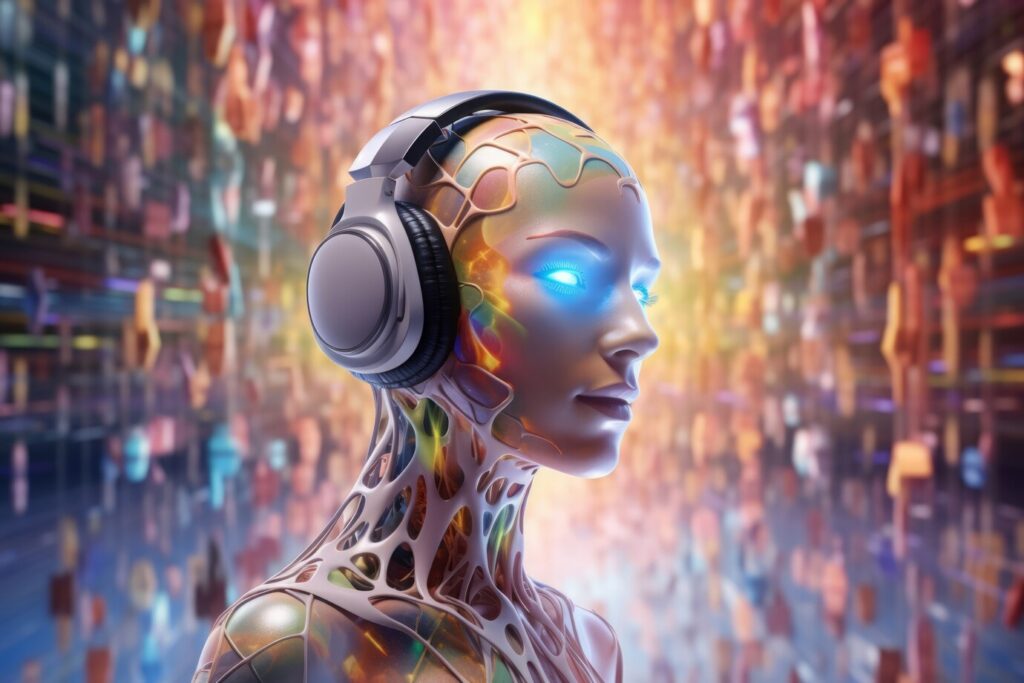
The music industry, a vibrant network of creativity, commerce, and cultural exchange, is undergoing a significant transformation fueled by artificial intelligence (AI). From the recording studio to our headphones, AI is infiltrating every surface of music, affecting how music is created, distributed, consumed, and marketed. This essay explores deeper into the multifaceted impact of AI on the music industry, exploring its potential and challenges.
Revolutionizing Music Production: AI as a Co-Pilot
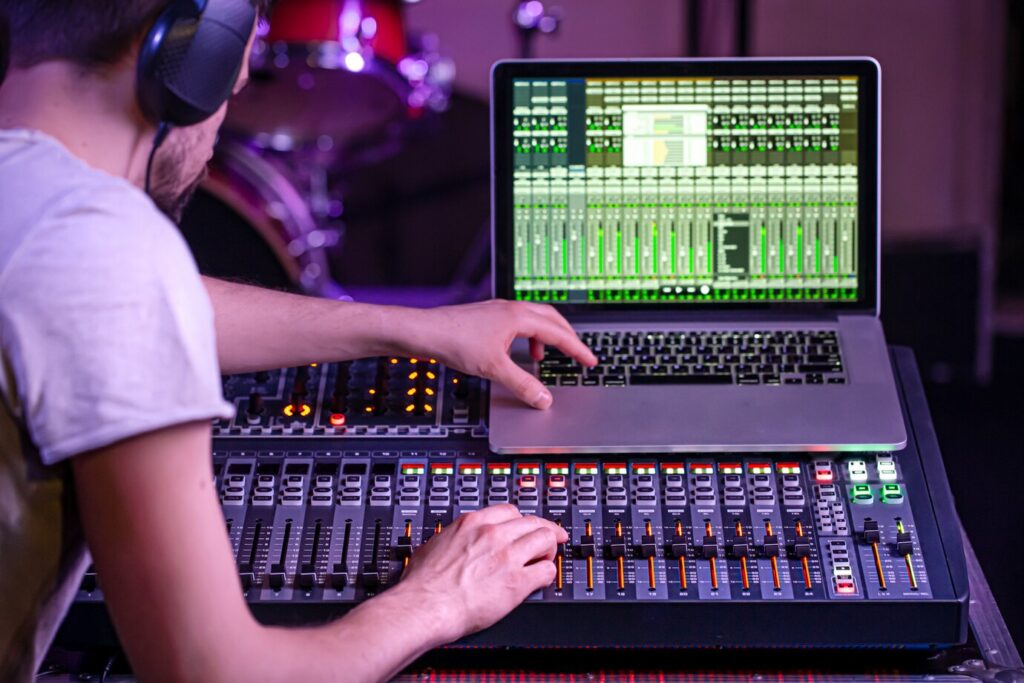
In the realm of music production, AI is emerging as a valuable collaborator, augmenting the creative process of human artists. Here are some key ways AI is influencing music creation:
AI-powered composition tools: Platforms like Amper Music and Jukebox allow users to generate musical elements like melodies, chord progressions, and even entire song structures. These tools can be a springboard for inspiration, helping artists overcome writer’s block or explore new sonic territories.
Intelligent mixing and mastering: AI algorithms can analyze audio recordings and suggest adjustments to EQ, compression, and other parameters. This can streamline the mixing process, saving producers valuable time and effort.
Virtual session musicians: AI-powered virtual instruments can mimic the sounds of real instruments with impressive accuracy. This opens doors for solo artists or producers to create rich, layered arrangements without needing a full band.
However, it’s crucial to remember that AI is not a replacement for human creativity. The magic of music lies in the emotional connection it evokes. It is a quality that stems from the imagination and artistry of human composers. AI can be a powerful tool, but it lacks the ability to infuse music with raw emotion, personal experiences, and cultural tones.
The Algorithmic Playlist: A Personalized Music Journey
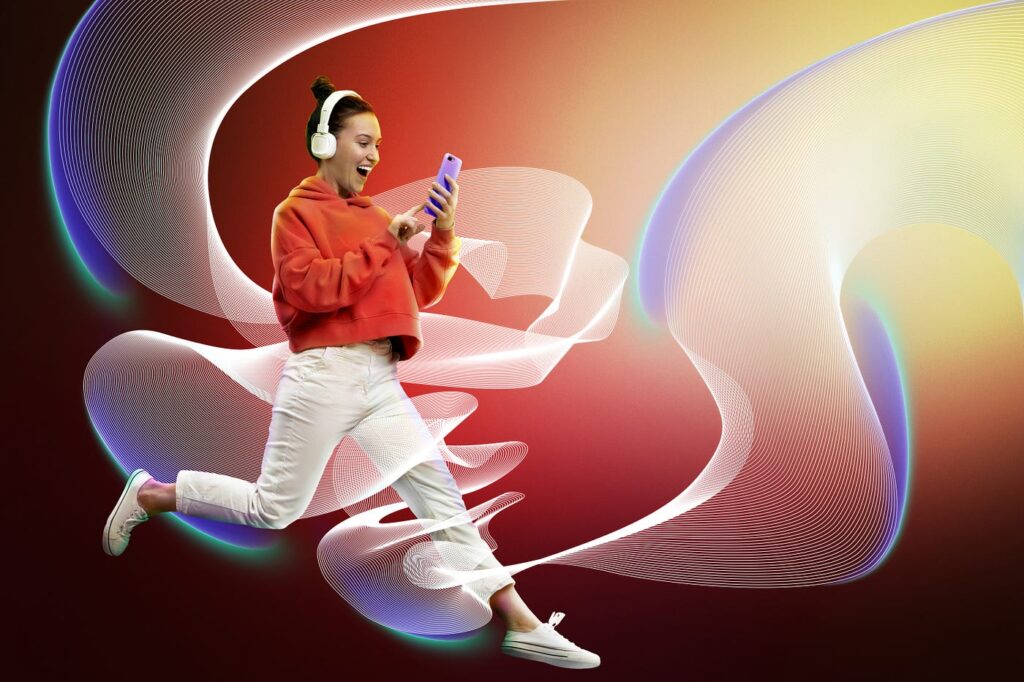
The way we discover and consume music is also being reshaped by AI. Streaming services like Spotify and Apple Music leverage AI algorithms to curate personalized playlists and recommend music tailored to individual preferences.

Recommendation engines: By analyzing listening history, demographics, and even mood indicators (based on factors like tempo and genre), AI algorithms can suggest songs or artists that a user is likely to enjoy. This hyper-personalized approach can be a boon for music discovery, helping listeners find hidden gems and broaden their musical horizons.
Smart playlists: AI can generate playlists that dynamically adapt to a user’s activity or mood. Imagine a workout playlist that adjusts the tempo and intensity based on your heart rate, or a study playlist that curates calming and focus-enhancing music.
While AI-powered recommendations offer undeniable convenience, there are concerns about the potential for homogenization. Algorithmic filters can create echo chambers, where users are only exposed to music that reinforces their existing preferences. This could limit listeners’ exposure to diverse genres and stifle the discovery of new and upcoming artists.
Marketing Melodies: AI Streamlines Promotion

The marketing and promotion of music are also being impacted by AI. Here’s how:
Targeted marketing campaigns: AI can analyze user data to identify potential fans and target marketing campaigns with laser precision. This allows artists to reach the right audience. It helps in maximizing the effectiveness of their promotional efforts.
Social media optimization: AI tools can automate social media posts, schedule content releases, and even analyze audience engagement. This frees up valuable time and resources for artists to focus on their music.
Chatbots and virtual assistants: AI-powered chatbots can interact with fans online, answer basic questions, and even provide personalized recommendations. This allows artists to build stronger relationships with their audience and create a more engaging experience.
While AI offers valuable marketing tools, it’s important to maintain a human touch. Fans crave authenticity and genuine connection from their favorite artists. Overreliance on automated marketing tactics can create an impersonal experience, potentially alienating fans.
The Copyright Conundrum: Who Owns AI-Generated Music?
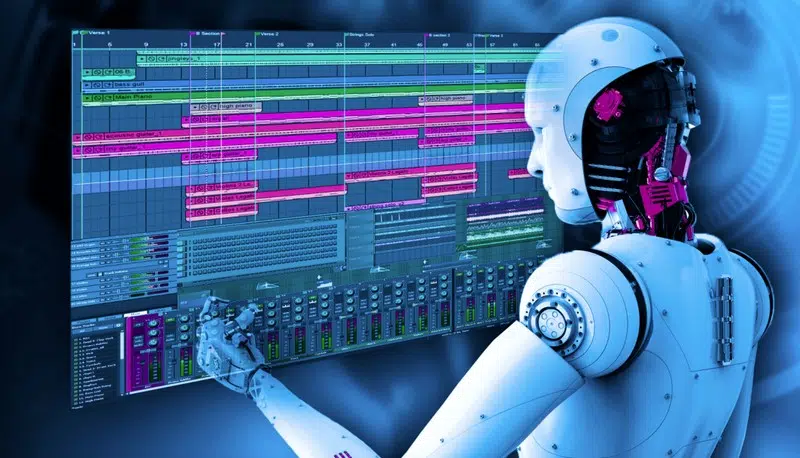
The rise of AI-generated music raises questions about copyright ownership. If an AI composes a song, who owns the rights – the developer of the AI, the person who used the AI to create the music, or both? These are legal gray areas that require careful consideration and clarification. It ensures fair compensation for all parties involved.
Bias in the Algorithm: The Ethical Considerations of AI
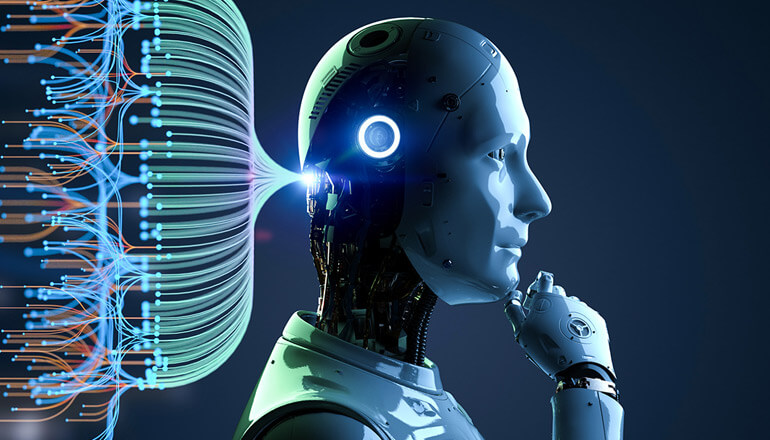
As with any technology, the ethical implications of AI in music must be addressed. AI algorithms can perpetuate existing biases in the music industry if not carefully monitored. For instance, an algorithm trained on a dataset of mostly male artists might be less likely to recommend music by female artists. It’s crucial to develop AI tools with diverse datasets and implement safeguards to prevent bias from creeping into the music experience.
Conclusion
The Human-AI Symphony: A Collaborative Future

The future of music lies in a collaborative space where human creativity and AI’s analytical power work in harmony. AI can be a powerful tool for music production, distribution, and marketing, but it should never replace

